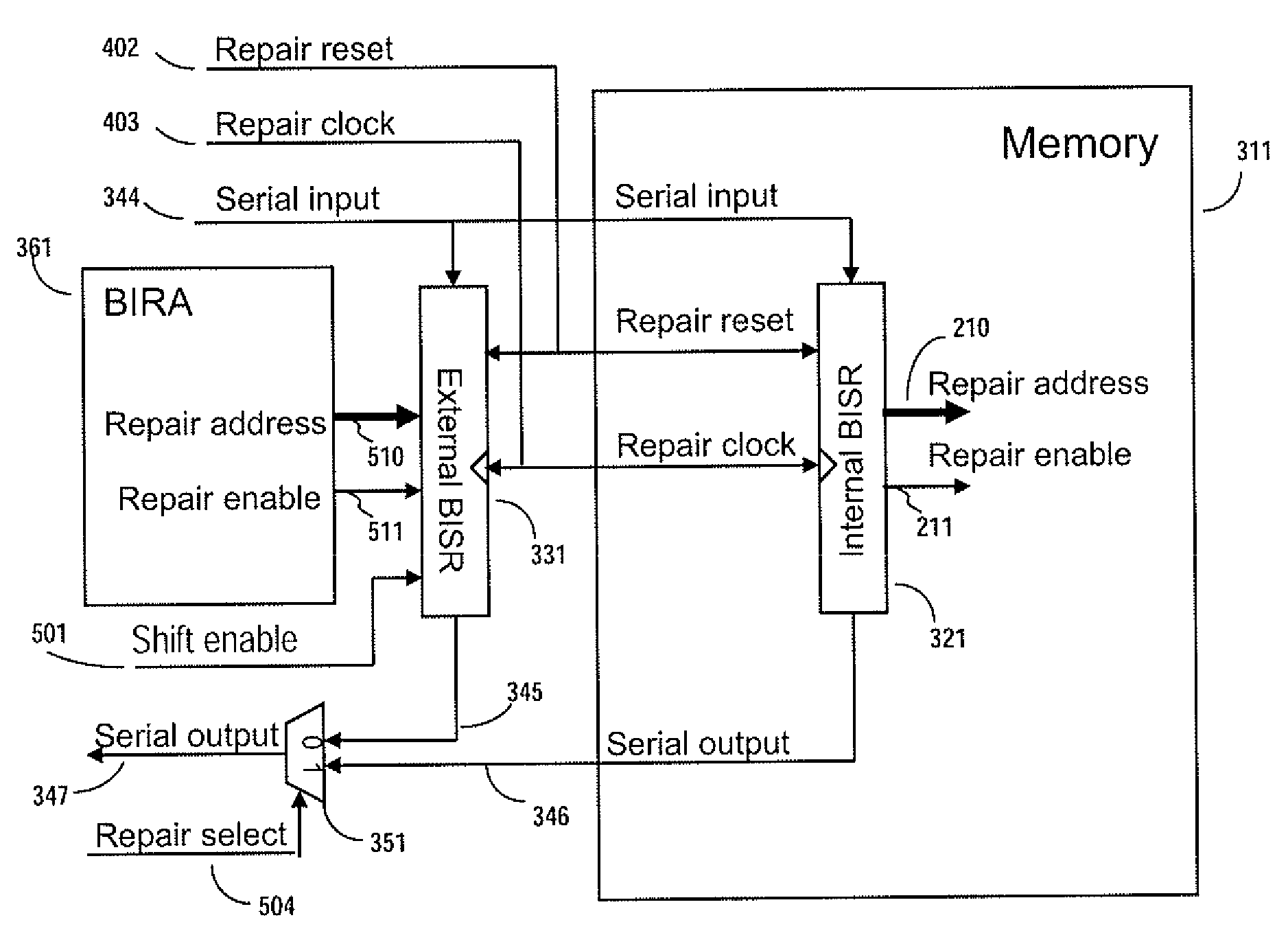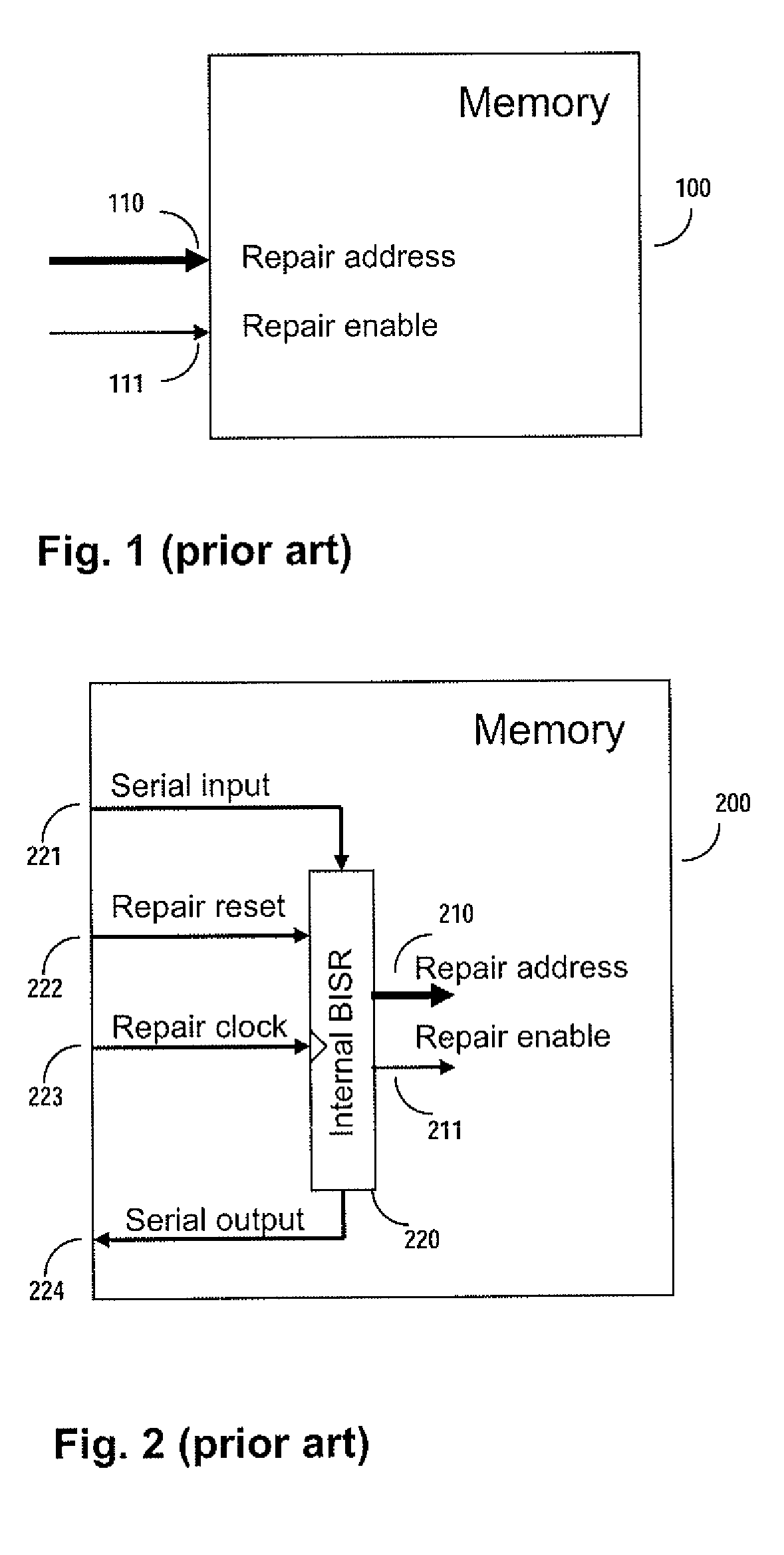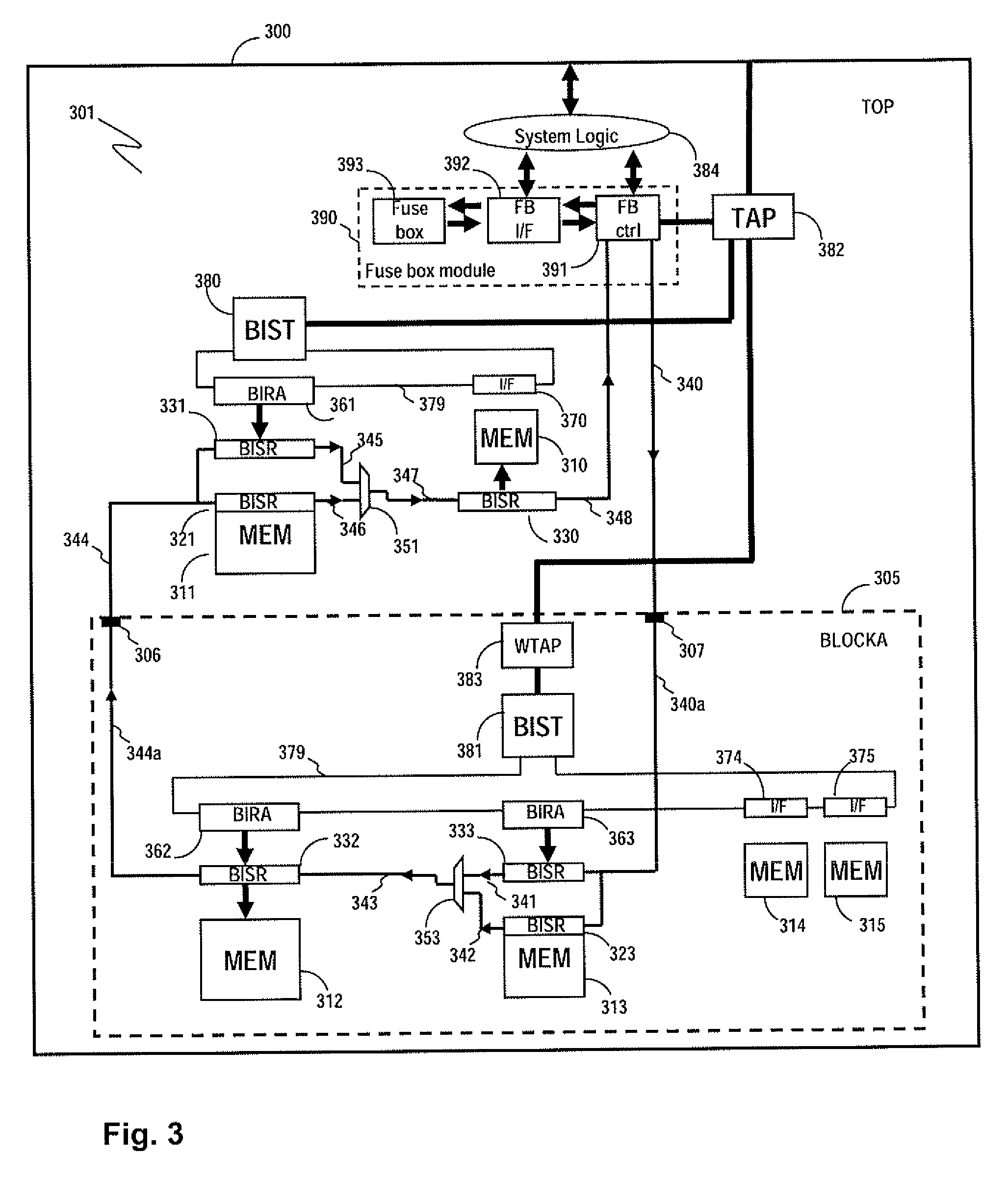Method and apparatus for storing and distributing memory repair information
a technology of memory repair and information storage, applied in the field of integrated circuits, can solve the problems of processing overload, inability to support memory incorporating a mixture of parallel and serial repair approaches, and adversely affecting the ability of the integrated circuit housing them to operate in its intended manner
- Summary
- Abstract
- Description
- Claims
- Application Information
AI Technical Summary
Benefits of technology
Problems solved by technology
Method used
Image
Examples
Embodiment Construction
[0059]The present invention will now be described for the purposes of illustration only, in conjunction with certain embodiments. It is to be understood that other objects and advantages of the present invention will be made apparent by the following description of the drawings according to the present invention.
[0060]While a preferred embodiment is disclosed, this is not intended to be limiting. Rather, the general principles set forth herein are considered to be merely illustrative of the scope of the present invention and it is to be further understood that numerous changes may be made without straying from the scope of the present invention. In particular, all dimensions described herein are intended solely to be exemplary for purposes of illustrating certain embodiments and are not intended to limit the scope of the invention to any embodiments that may depart from such dimensions as may be specified.
[0061]Referring first to FIG. 3, there is shown, an exemplary embodiment of th...
PUM
 Login to View More
Login to View More Abstract
Description
Claims
Application Information
 Login to View More
Login to View More - R&D
- Intellectual Property
- Life Sciences
- Materials
- Tech Scout
- Unparalleled Data Quality
- Higher Quality Content
- 60% Fewer Hallucinations
Browse by: Latest US Patents, China's latest patents, Technical Efficacy Thesaurus, Application Domain, Technology Topic, Popular Technical Reports.
© 2025 PatSnap. All rights reserved.Legal|Privacy policy|Modern Slavery Act Transparency Statement|Sitemap|About US| Contact US: help@patsnap.com



